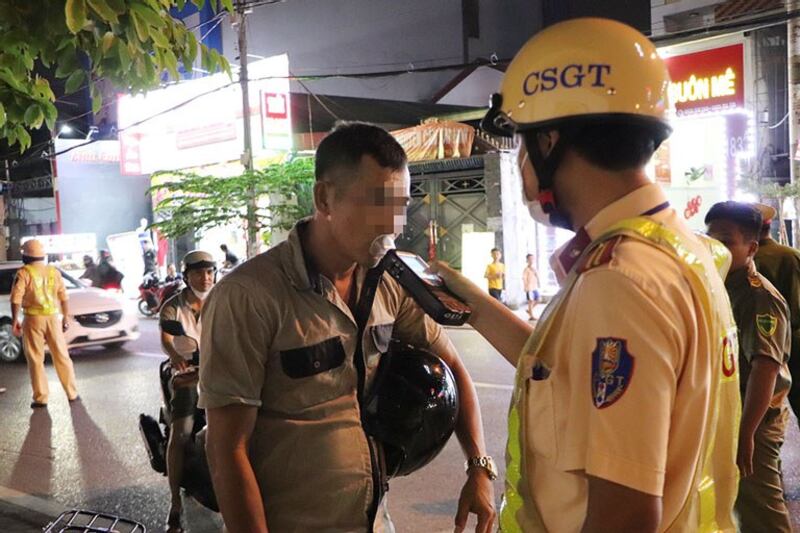Vietnam has been getting tougher on drunk driving the past few months, and that’s led to a drop in alcohol consumption, emptier streets at night and lower sales at major beer companies.
Drivers with even trace amounts of alcohol in their blood have been charged with driving under the influence, local media outlets reported.
The crackdown enforces 2019 laws with zero tolerance for drivers with alcohol in their systems.
VnExpress reported that in the last two months of 2023, Ho Chi Minh City launched the largest- ever anti-drunk driving campaign, deploying stronger than normal traffic police teams near the city's nightlife areas.
More than 40,000 people die annually in Vietnam from alcohol-related causes, statistics from the Department of Disease Prevention under Vietnam's Ministry of Health said.
A freelance laborer in Ho Chi Minh City, who requested anonymity to speak freely, said he had to forgo drinking with his friends on the weekends.
He said that it was right to punish drivers who are clearly drunk, with very high alcohol levels in their blood, but the current rules, that slap a DUI on someone who had one or two beers, are simply too strict.
"In my opinion, there should be some kind of means to check the sanity of drivers," he said.
"For example, after asking them to breathe into a breathalyzer, if the level is high but the subject can walk for ten steps in a straight lane or zigzag one without falling, or driving normally, he or she should not be penalized."
Sales down
The crackdown is hurting companies’ business. The Hanoi-Thanh Hoa Beer Company said fourth quarter sales fell 11% from a year ago, as total consumption during the three months declined by 2.9 million liters (766,100 gallons).
The Saigon-Hanoi Beer Corp.'s revenue dropped 3%, and its after-tax-profit decreased by 25% to 43.4 billion dong (US$1.8 million), the Tuoi Tre online reported.

Even with the Tet holidays coming soon – Vietnam’s New Years – sales of beer and wine are slow, the owner of a drinking establishment in Ho Chi Minh City, the country’s largest city.
A resident of the city said that many of the streets that would normally be busy at night time are now deserted.
“The fact that traffic police set up points right at the bistros to check blood alcohol-level right when you leave, that’s why all the bistros are empty. And they used to be crowded from lunchtime to midnight,” he said.
A Hanoi resident said things were similar in the capital: aggressive checkpoints, empty streets and hurting restaurant owners.
In recent months, provincial police began implementing blood alcohol-level checks at all interprovincial and provincial roads.
Police in small villages are also checking between 8:00 a.m. and 10:00 p.m.
‘Overly excessive’
Retired military senior official Nguyen Quang Vinh, from Hanoi, said the laws passed in 2019 were “abuse of power by the Ministry of Public Security.”
“The provision that the driver’s alcohol level be at zero is excessive,” he said. “I know a case where a driver had only eaten a crab soup bowl with vinegar in it. He was then tested and found to have alcohol in his system and he was fined and his driving license withheld. Thus, the citizens were bothered. It must say that [the law] is inappropriate.”
Hoang Cuong, another resident, said he was against drunk driving, but opposed the harsh penalties.
“Any law made without sociological research and opposed by the people is unconstitutional,” he said. “Since all have the rights to look for personal happiness at any time and anywhere.”
Translated by An Nguyen. Edited by Eugene Whong and Malcolm Foster.
